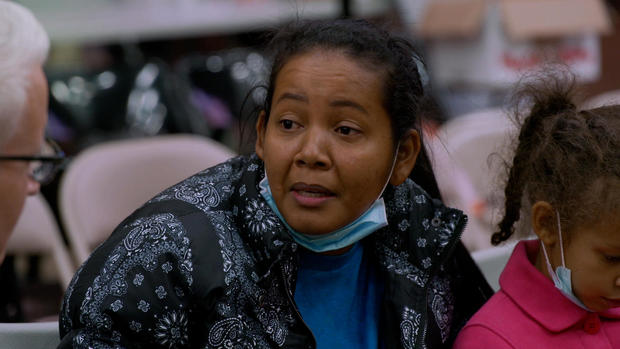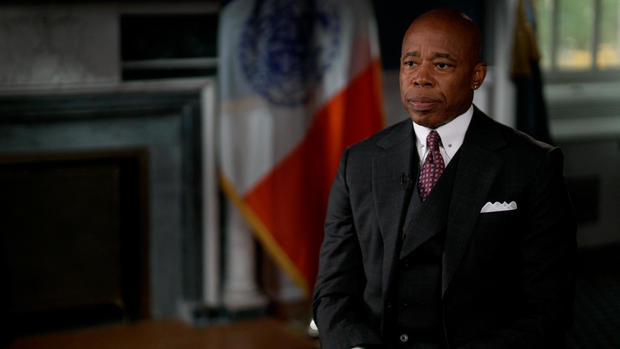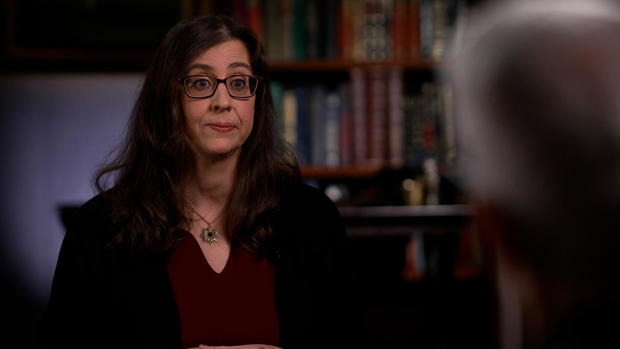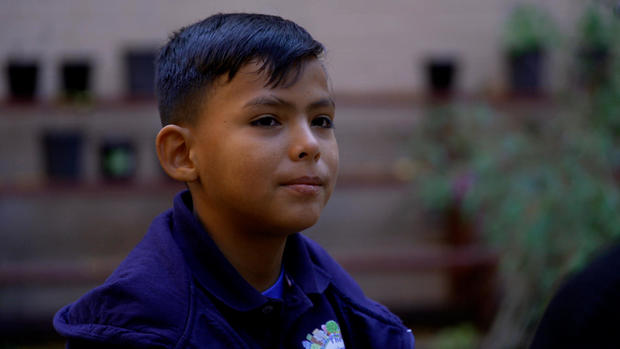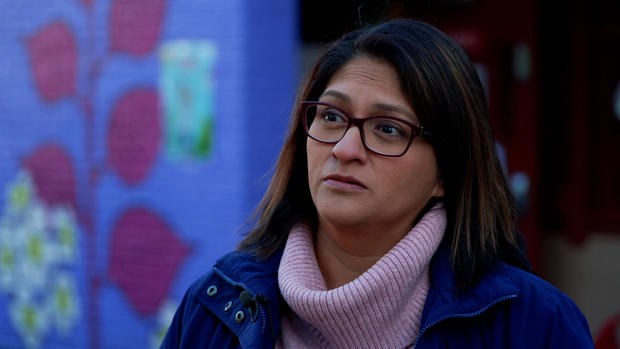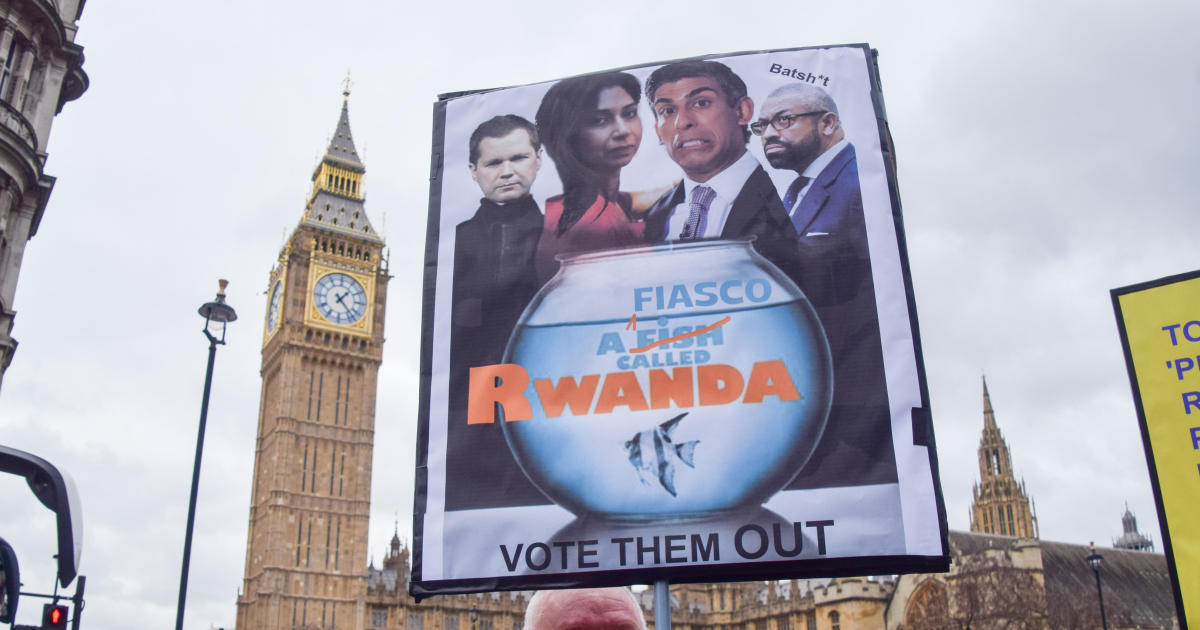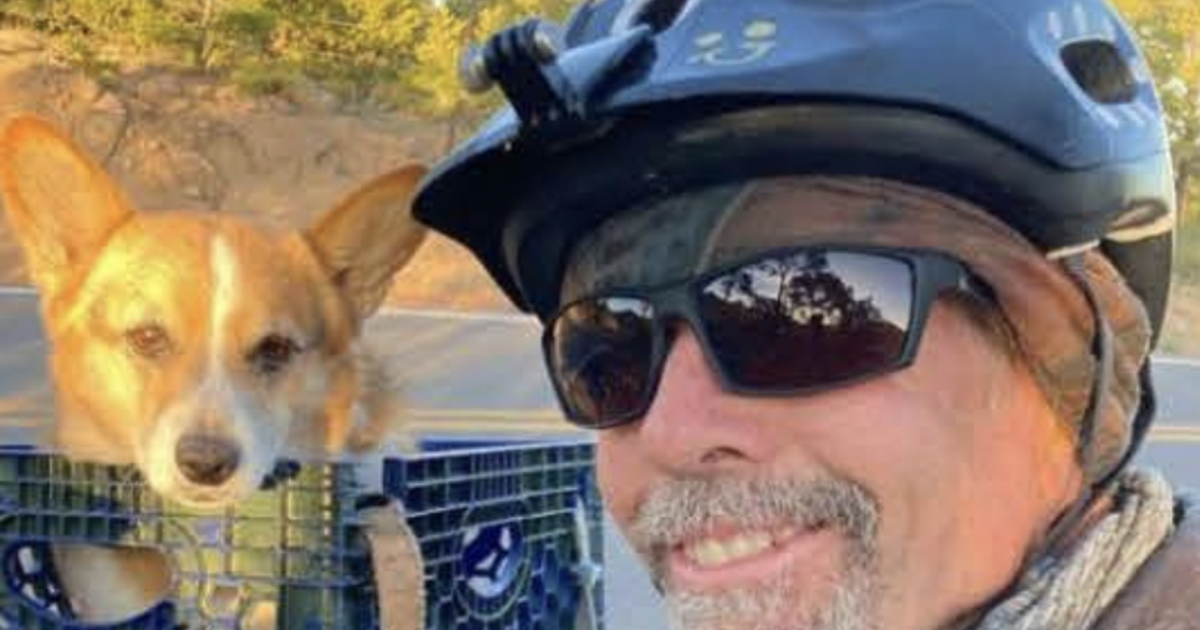Migrants bused from southern border to New York City enter a backlogged and broken asylum system
For months buses from the U.S./Mexico border carrying tens of thousands of men, women and children from Central and South America have been arriving in New York, Chicago and Washington D.C. They were organized by the Republican governors of Texas and Arizona and the Democratic mayor of El Paso, and paid for mostly by taxpayers. Greg Abbott, Texas' governor, said the buses would give liberal, sanctuary cities "a taste" of what his state has had to deal with for years. Many of those coming to New York were Venezuelans fleeing poverty, violence, and authoritarian rule and hoping to apply for asylum. But the process can take years and, for much of that time, they aren't allowed to work. Caring for these new arrivals has been a big challenge and it's drawn attention to a long-standing and bipartisan failure to fix the nation's broken asylum system.
When the buses began arriving at New York City's Port Authority Terminal from Texas without warning in August, city officials had to scramble. On some days as many as eight to ten buses rolled in, filled with men and women carrying children, but no luggage.
Last month, we met an engineer, a taxi driver, some college students and construction workers. They were welcomed by Spanish-speaking volunteers from local nonprofit groups who gave them water and food and donated winter coats.
Standing nearby, Ledys Gomez was crying. She told volunteers she'd been separated from her husband and 18-year-old son by border officials in Texas. Her 7-year-old daughter was with her. To get to the U.S., like many Venezuelans, they'd made their way through seven Latin American countries and a perilous stretch of jungle.
Ledys Gomez (Translation): It was very difficult, because in the jungle we ran out of food, and we ran out of water, And a child was shot. There [were] a lot of dead people. This is my first time emigrating, and I did not know humans were capable of so much evil.
Anderson Cooper: How were you treated when you crossed the border in the U.S.?
Ledys Gomez (Translation): Well, you can interpret my silence. You can interpret my silence. I didn't like being separated from my son.
Gomez told us she was thankful for the kindness volunteers at Port Authority had shown her. They'd even given her daughter a doll.
Ledys Gomez (Translation): Thank you for treating us well. It's been a while since we were treated well.
Within an hour, the volunteers had found her son at a homeless shelter in Manhattan and brought him to Port Authority to reunite with his mother and sister.
Ledys Gomez later found her husband too. Her family now lives in one of 58 hotels the city has turned into emergency shelters at a cost of about $200 a room per night. Unsure how many people would ultimately come, and how much it would cost to provide them with food, shelter, medical care and other services, New York's Mayor Eric Adams declared a state of emergency last month.
This past week, Adams told us more than 22,000 migrants have arrived in the city so far.
Anderson Cooper: This is a city of, what, eight million people. Why would the arrival of 22,000 new people be such an emergency?
Eric Adams: We're a city of eight million people that ca-- just came through-- the pandemic. Many of our residents lost their jobs and lost homes. We already had crises that we were navigating and dealing with
Anderson Cooper: Governor Abbott said that the buses would bring the reality of the crisis at the southern border to liberal cities, and it has done that, hasn't it?
Eric Adams: No, I-- I-- I disagree with that. He created this humanitarian crisis by his human hands, his actions. There was nothing that prevented him from communicating with our team of saying, "How do we coordinate this so we don't overburden another municipality?"
Anderson Cooper: His argument would be, "Well, we don't know when migrants are gonna cross the border illegally. so why shouldn't these other cities get a taste of that?"
Eric Adams: Okay, is his fight with the national policy, or is his fight with New Yorkers?
Anderson Cooper: It is a stark reminder that the system is broken, is it not? I mean, that--
Eric Adams: Yes, and has-- the system has been broken. We have kicked this can down the road.
Anderson Cooper: Democrats, Republicans in Congress, nobody has clean hands on-- on fixing this at this point--
Eric Adams: Yes.
More than 7 million people have fled the political, social and economic chaos in Venezuela so far. It's the second largest refugee crisis in the world after Ukraine. 187,000 Venezuelans who crossed the border from Mexico into the United States last year have been allowed to stay here while they apply for asylum. But the process now takes years.
More than three-quarters of a million people from all over the world are already in line ahead of them, waiting for an asylum hearing or a final decision. Many more are waiting just for an opportunity to apply.
Theresa Cardinal Brown: The asylum system has collapsed, yeah.
Theresa Cardinal Brown, a former immigration policy adviser in the Bush and Obama administrations, is now a managing director at the Bipartisan Policy Center, which tries to find common ground on major national issues.
Theresa Cardinal Brown: There are, you know, millions of people arriving to our southern border who are trying to seek protection, trying to avail themselves of our laws. And we just don't have the personnel, the resources, the infrastructure, or the right processes to manage what's happening there well right now.
Anderson Cooper: Do you have a sense of how long it is? Somebody who's arriving just now at the Port Authority Bus Terminal in New York, how long it's gonna be before they actually have an asylum hearing?
Theresa Cardinal Brown: On average, people who are not detained by Immigration and Customs Enforcement might wait three to five years.
Anderson Cooper: Three to five years? Are they allowed to work during that time?
Theresa Cardinal Brown: No. If you-- once you've formally filed your asylum claim in immigration court, 180 days later, then you can apply for work authorization. so it could be, you know, four years, four and a half years before you can ask for work authorization.
In the meantime, Brown says, asylum-seekers find themselves in limbo: they're here, but they can't legally work.
Edward (Translation): We don't come here to be a burden to this country. I come to work and push ahead.
Edward and Maria, who met in college in Venezuela, asked us not to use their last names out of concern for their relatives back home. It took them six weeks this summer to get to the United States with their 9-year-old son and 1-year-old daughter. They're now living in a hotel in the Bronx that was turned into an emergency shelter, but without work permits they're struggling.
Edward (Translation): I found a job at a supermarket. I worked for three days And he didn't give me, he didn't pay me. Nothing. I lost my time.
Anderson Cooper: You got taken advantage of.
Edward (Translation): My fear is, if I go to complain, he calls the police on me. And I thought, "no, they'll deport me." And that was my fear. So I left it like that.
Like many migrants we spoke with, Edward and Maria no longer have their Venezuelan passports, ID cards, or birth certificates, they say they were told to hand them over to U.S. Customs and Border Protection agents in Texas and never got them back.
Edward (Translation): Well, they put it in a folder They said, "Whenever you go to court, you can ask for them there."
Theresa Cardinal Brown: That's interesting.
Theresa Cardinal Brown says U.S. Customs and Border Protection regulations are clear. All documents "must be returned" unless they're fraudulent. We interviewed 16 migrants who arrived in New York by bus from Texas. All but four said they had important documents taken and not returned. And volunteers, case workers, and lawyers who work with the migrants also told us the problem is widespread.
In a statement, U.S. Customs and Border Protection said it was reviewing its "policies and practices to ensure that… documents are returned to the migrant absent a security or law enforcement reason."
One bright spot for many migrant families has been the New York City Public School System, which in a period of three months enrolled about 7,000 new students, most of whom don't speak English. Ten-year-old Cesar Romborges now goes to P.S. 145 in Manhattan. His family made the long journey from Venezuela to Mexico and then crossed the treacherous Rio Grande River into Texas.
Anderson Cooper: Do you remember what it was like coming here? Was it scary?
Cesar Romborges (Translation): Yes.
Anderson Cooper: What was scary?
Cesar Romborges (Translation): When my mom almost drowned in a river.
Anderson Cooper: And you-- you saw that happen.
Cesar Romborges (Translation): Yes.
The principal of P.S. 145, Natalia Russo, says she's been doing her best to help Caesar and the other new students adjust. She does some students' laundry at her home and has made sure they have school uniforms, supplies, and help getting into after-school programs.
Anderson Cooper: So what do you say to other families who see what's being done for these new kids?
Natalia Russo: My answer to that is that, this is a humanitarian crisis. These folks don't speak the language, they-- they're not part of this culture yet. We just want the children to be-- feel safe. Not only physically but emotionally. We'll do whatever it takes.
Cesar and other children of asylum-seekers will likely be fluent in English by the time their parents have their asylum cases ruled on by a judge. And if they fail to make their case, they and their kids could face deportation.
Anderson Cooper: How tough is it to make a case that you should get asylum?
Theresa Cardinal Brown: It's very tough. It's very tough. The legal requirement is that you have to have been persecuted or have a well-founded fear of persecution
Anderson Cooper: So if somebody says, "Look, I'm coming here 'cause I want a better life for my children--"
Theresa Cardinal Brown: That's-- doesn't qualify for asylum.
Anderson Cooper: So most of the people who are showing up at the Port Authority Bus Terminal, saying that they are-- wanna seek asylum, when they can get in front of a judge, most of them will not actually be granted asylum.
Theresa Cardinal Brown: I can't say that for sure. What I can say is that overall, asylum rates are about 30% . Venezuelans tend to have a much higher asylum rate because of what's happening in Venezuela.
In the past few weeks, the number of buses from the border arriving in New York has decreased significantly. That's because the Biden administration announced it was creating a legal pathway for 24,000 Venezuelan asylum seekers to enter the U.S. if they had sponsors. But it also began expelling Venezuelans to Mexico, if they'd crossed the border illegally.
Anderson Cooper: They basically went back to a policy that was in place-- put in place by the Trump administration, which allows for Venezuelans to be sent back to Mexico and not apply for asylum here in the United States.
Eric Adams: I think that the national politics is w-- (LAUGH) well over my head on determining what we're doing nationally.
Anderson Cooper: Do you think people who come to this country and want to seek asylum should be able to work while they're here waiting?
Eric Adams: Yes, I do.
Anderson Cooper: Doesn't that encourage more and more people just to come
Eric Adams: No, I don't. I don't think it creates a problem. What we should be asking is why is it taking so long? We should let people know right away, "Based on a preliminary review, you cannot get an asylum-- here in the country." And then those who are eligible and reach a minimum criteria, we can put 'em on a faster track.
The "Bipartisan Border Solutions Act" introduced in Congress would make that possible by adding more immigration judges and asylum officers and building four new processing centers along the southern border where the government could determine whether migrants have a credible fear of persecution before they're allowed to stay in the U.S. Theresa Cardinal Brown, the former policy adviser in two administrations, says she'd like to believe Congress will finally do something to fix the problem, but she's skeptical.
Theresa Cardinal Brown: For 30 years, they haven't passed really any substantive change to any of our immigration laws.
Anderson Cooper: Is this a Democratic failure, a Republican administration failure?
Theresa Cardinal Brown: It's both. At some point they've gotta decide that fixing it is better and necessary, more so than using it to try to win the next election.
Produced by Andy Court. Associate producers, Julie Holstein, Camilo Montoya-Galvez and Annabelle Hanflig.
